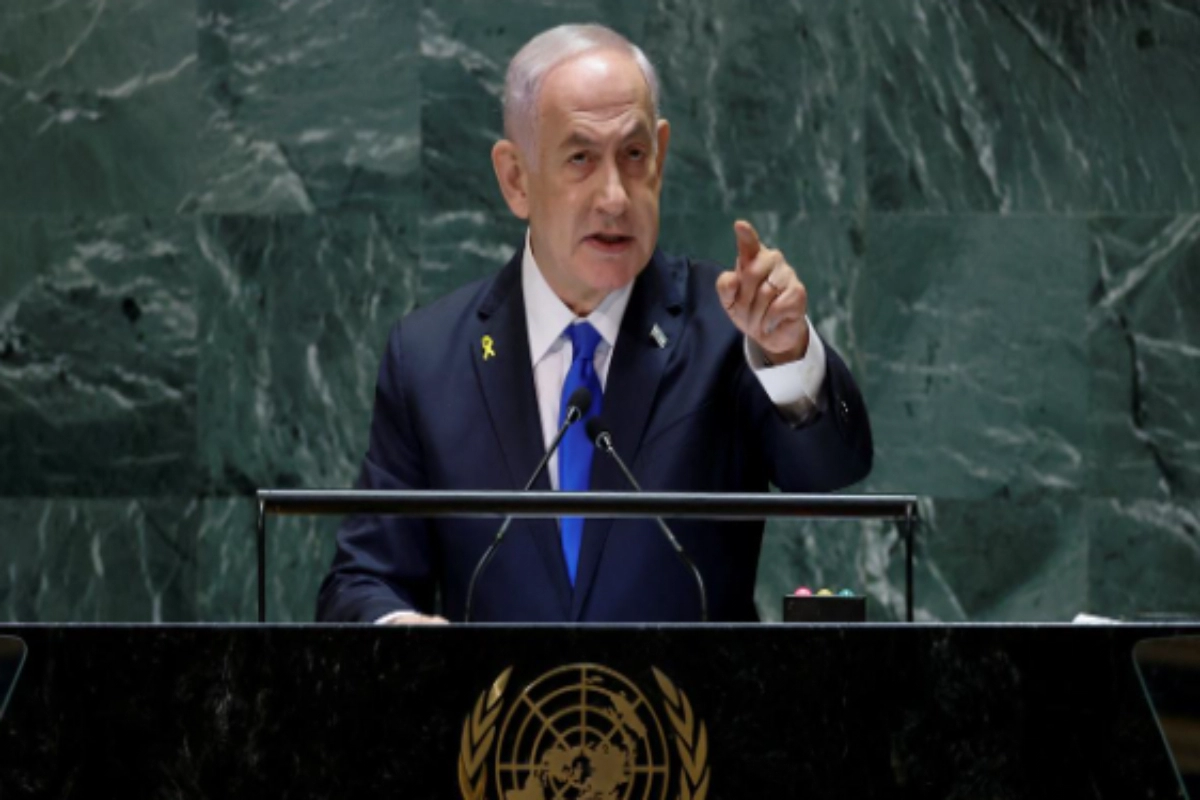Iran Labanon Israel War: Israeli Prime Minister Benjamin Netanyahu today confirmed his direct involvement in the killing of Hezbollah leader Hassan Nasrallah, described today as a turning point in the course of its military operations against the Shiite party. The strike targeted Hezbollah strongholds in southern Beirut, amid heightened tension and heavy rocket fire from Hezbollah into northern Israel. Nasrallah, 64, was among the killed in the bombings which flattened several residential buildings and struck dozens of Hezbollah sites both in eastern and southern Lebanon.
A Milestone in Israeli Security Efforts
Netanyahu hailed Nasrallah’s death as a crucial milestone in Israel’s efforts to restore security along its northern borders. Speaking in a national address, he defined the operation as a “critical achievement” in Israel’s military strategy. According to him, Nasrallah was behind the orchestration of numerous deadly attacks against Israelis and foreign nationals over the last few decades. These included the notorious 1983 bombings in Beirut, which killed 63 people at the U.S. embassy, while hundreds of U.S. Marines and French paratroopers stationed in Lebanon were also caught up in the blasts.
Netanyahu described Nasrallah as a linchpin in the Hezbollah terror network, adding that killing him was critical to undermining the military capabilities of the organization. “As long as Nasrallah was alive, he would quickly restore the capabilities we had eroded from Hezbollah.,” said Netanyahu, arguing that the death of the Hezbollah leader Hassan Nasrallah would have seriously degraded the ability of the group to continue with its operations. “We settled the score with the one responsible for the murder of countless Israelis and many citizens of other countries, including hundreds of Americans and dozens of French,” he added.
Iran Emergency Meeting
Iran has summoned an emergency meeting of the UN Security Council in an attempt to exact revenge on the Jewish nation amid rising tensions between Israel and Hezbollah, particularly following the death of the organization’s leader, Hassan Nasrallah.
On Saturday, thousands of Iranians protested against Israel’s invasion of Lebanon and demanded “revenge” for the death of Hassan Nasrallah, the leader of Hezbollah, in the streets of Tehran and throughout the nation. Pictures displayed demonstrators chanting “Revenge,” “Down with Israel,” and “Down with the US” while holding photos of Nasrallah.
Hezbollah’s Diminished Role and Hamas Pressure
The killing also has broader regional implications, related to Hamas, which is Hezbollah’s closest ally in Gaza. Netanyahu hinted that the diminished standing of Hezbollah would put more pressure on Hamas leader Yahya Sinwar and the attempts to get Israelis kidnapped by Hamas back during the surprise attack led by the group on October 7. “The more [Hamas leader Yahya] Sinwar sees that Hezbollah is no longer coming to save him, the greater the chances for the return of our hostages,” he explained.
Netanyahu Praises IDF, Mossad, and Shin Bet for Mission Success
Netanyahu described the success of the mission, praising both Israel’s military and intelligence agencies -IDF, Mossad, and Shin Bet. Saying “We are winning,” he spoke again about the victory of Israel’s military efforts and continued to emphasize the need to keep the pressure on Israel’s enemies.
Netanyahu also addressed Iran directly, saying that the killing of Nasrallah sent a message to Tehran and all of its proxies across the region. “There is nowhere in Iran or the Middle East beyond the reach of the long arm of Israel, and today you know how true that is. I say to the Ayatollah’s regime: whoever beat us, we will beat them,” he said. He left little room for interpretive nuances in the prime minister’s words concerning Israel’s ability and willingness to take action against Iranian interests in the region, reaffirming Israel’s determination to confront any perceived threats.
“We are determined to continue to strike at our enemies, return our residents to their homes, and return all our abductees. We do not forget them for a moment,” he said. Netanyahu portrayed this as the “historic turning point” in Israel’s confrontation with Hezbollah and other adversary forces. His message was one of unity, resilience, and commitment to return displaced Israeli residents to their homes and secure the safe release of hostages. After the death of Nasrallah, Netanyahu declared that the war between Israel and his enemies would continue till victory was won.
